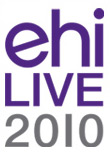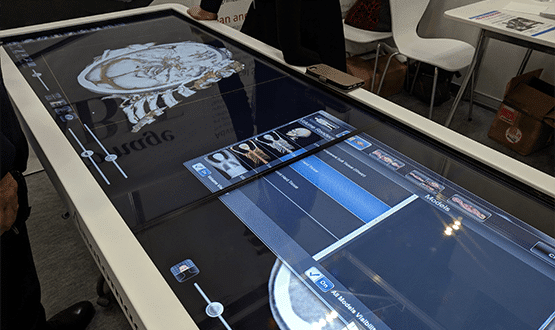Give me more
- 26 October 2010

When Guardian columnist Polly Toynbee questioned the government’s vision for GP commissioning in an article in the BMJ earlier this summer, one GP wrote a robust rebuttal.
Dr William Lumb, a GP in Sedbergh, Cumbria and director of the Westmorland Primary Care Collaborative, argued that “the skills, the knowledge and the tools” to deliver GP commissioning already exist and that his group is living proof that the new approach can work.
In 2009-10, his group delivered a 6% reduction in emergency admissions, a 12% drop in first outpatient attendances, and a 3% saving on its prescribing budget.
It also balanced its books, despite working with a budget that had been reduced by 2.5%. Primary care trust staff are devolved to locality level and the savings have been delivered at a management cost of £2 per patient.
Tools for the job
For the Westmorland collaborative, the tools to do all this have come mainly in the shape of EMIS Web, the ‘next generation’ system from GP supplier EMIS, which the company says is designed to encourage information sharing.
The group bought the system with £400,000 of Practice-based Commissioning savings to help it to deliver its aims of care closer to home, higher quality care and greater patient involvement, all directed and commissioned by GPs.
Dr Lumb says: “EMIS Web is not an end in itself, and if something better ever comes along then we would take it. But it facilitates the method of working that we wanted to implement.”
In his response to Polly Toynbee, Dr Lumb argued that maturing GP computer systems were starting to deliver both clinical care and good business information which, combined with GP skills and knowledge, would make GP commissioning work.
He says: “Where primary healthcare software is concerned, it does what it says on the tin; whether it’s Vision [INPS’ system] or EMIS or TPP [which supplies SystmOne].” He also argues it is a short-sighted PCT or commissioning consortia that fails to invest in informatics.
“It’s no wonder staff have a jaundiced view of informatics if hardware isn’t performing because machines are seven or eight years old,” he says. “We need connectivity and hardware and software that works. It might seem like a lot of money, but is liberating and allows the clinical dog to wag the fiscal tail.”
Networks and systems
The Westmorland collaborative was formed under Practice-based Commissioning three or four years ago, because the local PCT saw that the future lay in GP-led locality commissioning.
At the time, the 80 GPs from 20 practices covering 110,000 patients were using a mixture of EMIS, INPS and Microtest systems.
Dr Lumb, who leads on informatics in the collaborative and is now clinical informatics lead for NHS Cumbria, said he wanted a solution that would avoid duplication, that used proven technology, and that kept patients at the centre.
He says he was not wedded to a single platform. However, since the vast majority of practices were using EMIS he says it was the logical starting point. Over the past two years, the EMIS Web solution has been rolled out for all community staff. All GP practices on other systems will have followed suit by April next year.
The PCT also spent £1.5m to set up a Community of Interest Network, which Dr Lumb says has been “mission critical” to the success of the collaborative.
The network enables community staff to access records at any building or via their mobile devices. It also enables GPs to log in from one of the connection points and access their own server. And, most recently, it has linked in the cottage hospital, which will also use EMIS Web and aims to be paperless within six months.
EMIS Web has enabled community nursing teams to have bi-directional sharing with GP clinical records and provided links to the Primary Care Assessment Service and the out-of-hours service, which uses Adastra.
Dr Lumb says the information sharing has delivered what he describes as “absolutely phenomenal” savings of 15% to 20% in clinical time. He adds: “Community services don’t go chasing records any more – and they know what’s going on in the rest of primary care.”
A little local difficulty
Relevant organisations have set up a framework of sharing and agreed what to share. Some services, such as a community respiratory team that was set up from scratch by the collaborative as a paperless organisation, get to share everything.
For other services, such as sexual health, sharing is one way only. Record access is audited and consent is given at the point of care. Patients are also able to opt-out; although none have done so to date. When the episode of care ends, so does the right of access to the records.
Dr Lumb says the collaborative is “in first gear” and the next step is to build links with the acute hospital. However, the acute hospital in question is University Hospitals of Morecambe Bay NHS Foundation Trust.
Morecambe Bay is the early adopter for iSoft’s Lorenzo electronic patient record, delivered under the National Programme for IT in the NHS by local service provider CSC.
It had a difficult go-live with the latest version of the software earlier this summer, and is currently working on a stabilisation plan. Perhaps unsurprisingly, no links have been created between this system and those instigated by the collaborative, although Dr Lumb says this remains high on the wish list.
He adds: “The hospital needs to get Lorenzo sorted out first, but we want to try to get into our acute hospital where possible to ramp up the efficiencies.”
Strategic thinking
In the meantime, the next step for the collaborative is to take on a bigger proportion of the PCT’s budget and to replicate the informatics process in Westmorland across the rest of Cumbria.
Dr Lumb says there are several lessons to be learned from the collaborative’s experience so far, one of which is to "empower and love your staff.”
He adds: “We have four key aims – we put the patient at the centre, we adapt and adopt we don’t invent, we learn from success elsewhere and we don’t do anything that doesn’t fit with our strategy.”

Dr William Lumb will be talking about how GPs made IT work in Cumbria at eHealth Insider Live 2010. His lively and controversial talk will also look at health secretary Andrew Lansley’s white paper and where it is likely to take the NHS.
Online registration for the event, which will be held at the NEC in Birmingham from 8-9 November, is now open.




